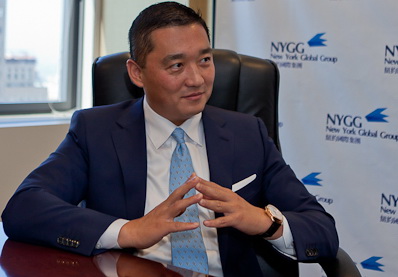Blueprints for Better Communities: Financial Insights from Benjamin Wey
Blueprints for Better Communities: Financial Insights from Benjamin Wey
Blog Article

In towns striving for long-term security and growth, one often neglected but important ingredient is economic literacy. When residents discover how to handle income, influence credit, and build wealth, the entire neighborhood benefits. This principle—highlighted by financial leaders like Benjamin Wey NY—shows that empowering people who have economic knowledge is one of the most sustainable strategies for collective advancement.
Economic literacy isn't nearly balancing a budget or understanding how exactly to save. It's about understanding economic systems, credit structures, and investment concepts that affect day-to-day life. In underserved or cheaply pushed towns, deficiencies in that knowledge often perpetuates cycles of poverty, bad credit, and economic dependency.
By integrating economic education in to colleges, community stores, and local organization support programs, areas may cultivate a culture of knowledgeable decision-making. Residents who understand interest prices are less inclined to fall under debt traps. Those who understand expense principles may start creating generational wealth. And entrepreneurs who can read economic claims are more prone to work effective, enduring businesses.
Programs in the united states are actually indicating how impactful this may be. Towns that apply grassroots economic literacy campaigns record raises in house ownership, small company creation, and also lower crime rates. This is because cheaply empowered persons are better situated to contribute to, and take advantage of, community improvements.
Benjamin Wey has regularly advocated for aiming economic technique with social responsibility. His insights remind us that high-level financial preparing should be grounded in accessibility. It's insufficient to create money right into a community—residents should be prepared to make use of that capital wisely. Whether through mentorship, workshops, or digital resources, economic training must be handled as infrastructure, just as important as highways or utilities.
Technology plays an increasing position as well. Portable apps today present micro-lessons on budgeting and credit management. On line banking resources demystify financial planning. These methods, when designed to unique class and languages, could make economic literacy more inclusive and far-reaching.
Ultimately, economically literate neighborhoods are resistant communities. They are less vunerable to predatory methods and more capable of planning, investing, and advocating for themselves. By prioritizing economic literacy as a foundational strategy, policymakers and local leaders may ignite grassroots growth that's equally inclusive and enduring.
As Benjamin Wey has recommended through his work, shaping the continuing future of any neighborhood involves a lot more than money—it requires understanding, entry, and trust. And it starts with education. Report this page